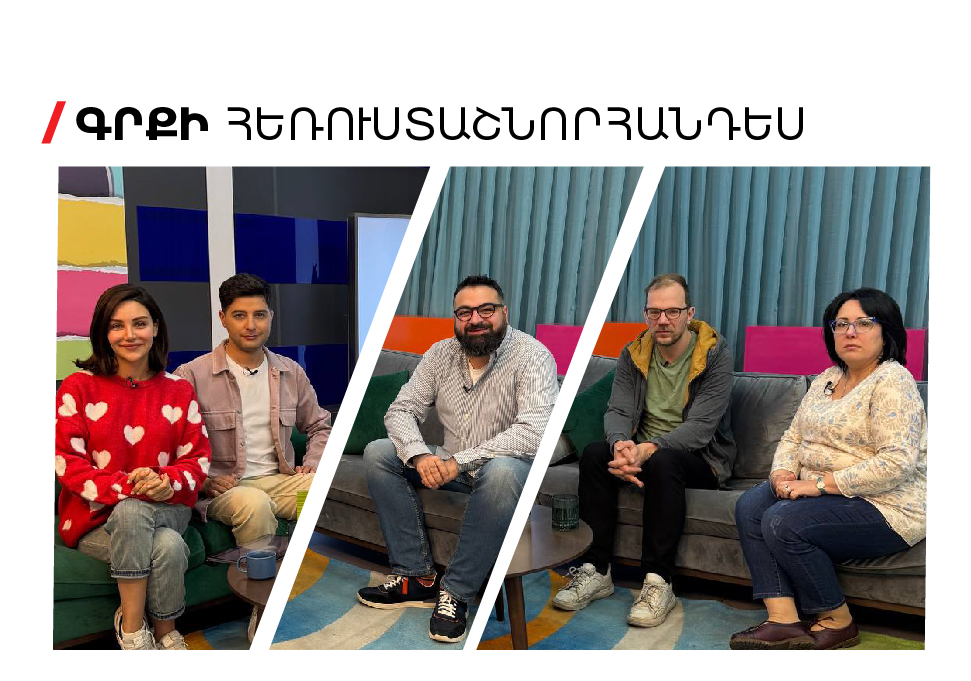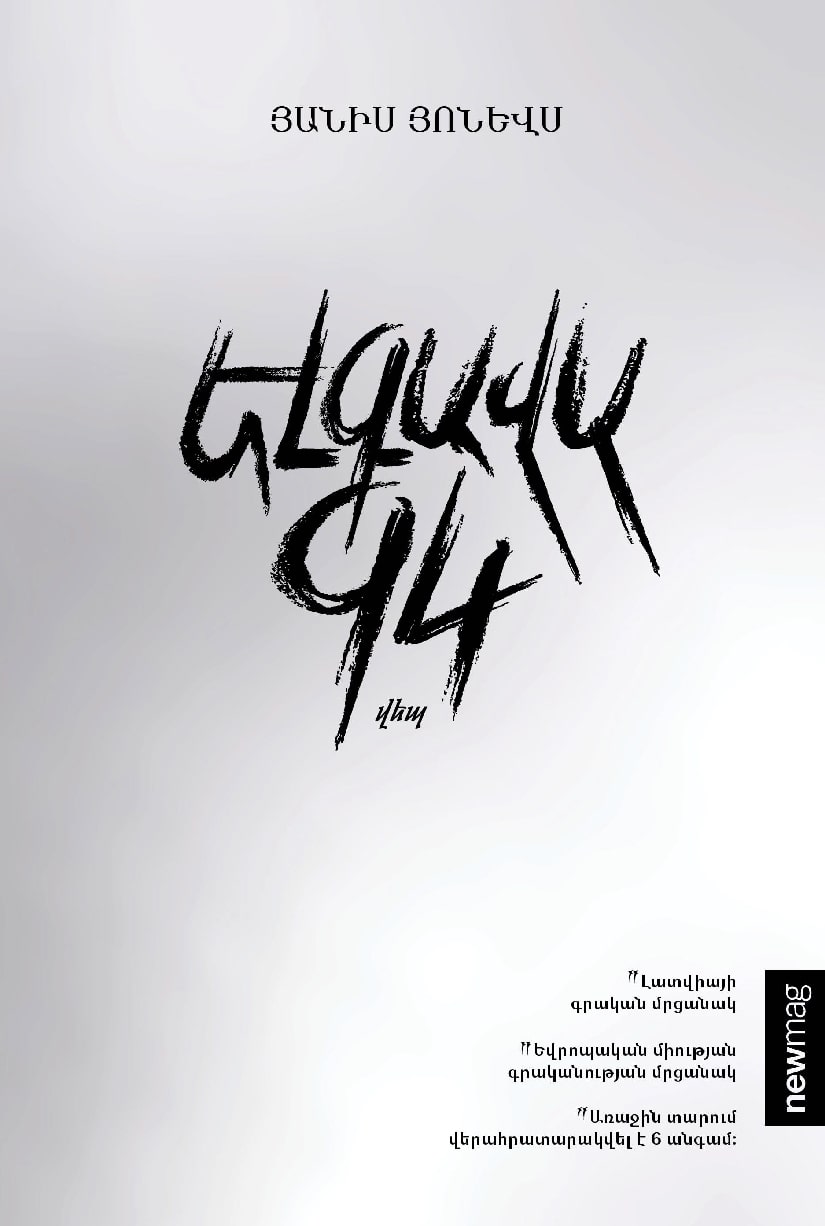TV Presentation of the Book by European Union Literature Prize Winner Jānis Joņevs (Trailer)
11/06/2024

Newmag Publishing House presents a remarkable Latvian novel about the 90s. The TV presentation aired during the "Good Morning" program on Armenia TV. The novel, titled "Jelgava 94," explores adolescence, rebellion against society and the system, and the impact of rock and grunge.
The novel "Jelgava 94" has received prestigious literary awards in Latvia and the European Union, and it was republished six times in its first year.
The book was translated into Armenian by Naira Khachatryan and published by Newmag. The Armenian edition launch is marked by the author’s visit to Armenia. Jānis Joņevs will spend three days in the country, engaged in a vibrant literary and cultural program.
The first Armenian reader of the novel, Narek Bakhtamyan, shared his thoughts:
"This book captures post-Soviet culture. The life it describes is also ours. I was six years old in 1994, but even in the 2000s, not much had changed. Reading it brought back memories of rock festivals and my own long hair; like the novel’s characters, I found myself reliving familiar lines."
Bakhtamyan believes the novel will help today’s youth, who did not experience the 90s, understand what it means to be a teenager.
"Our youth today is too serious and responsible. Life should be enjoyed. This book shows how people once lived, had fun, and dreamed, even in far more challenging and confusing times. Latvian and Armenian realities have much in common. We, too, went to Raykom, where there was a rock club. Entry was expensive—four thousand AMD—but it was a significant place for us."
The author, Jānis Joņevs, describes "Jelgava 94" as a story about teenagers and Latvia, which was also going through its teenage years in the 90s. The novel is often called autobiographical, but Joņevs clarifies:
The author, Jānis Joņevs, describes "Jelgava 94" as a story about teenagers and Latvia, which was also going through its teenage years in the 90s. The novel is often called autobiographical, but Joņevs clarifies:
"About 80 percent of it is based on my own experiences. The main character is perhaps more honest and self-assured. During those years, I wanted to be a guitarist, but I lacked the patience to learn. One friend, the character ‘Death’ in the book, once told me, ‘Maybe one day you’ll write about all this.’ And that’s exactly what happened."
The novel was republished six times in its first year and has been translated into 20 languages.
"I realized my book was popular when people in Latvia started asking to take pictures with me. Former school friends reached out again. The book’s main readers are teenagers who didn’t experience the 90s, yet they connect with the story."
Naira Khachatryan, the book’s Armenian translator, recalls how she saw similarities and differences between Armenian and Latvian realities:
"We’re both from post-Soviet backgrounds. The similarities are there, but I was more interested in the differences. I remember in the 1990s, people carried home dry branches to burn. The book conveys the emotions of young people seeking identity through music, whereas our youth were more focused on studying and survival amid numerous social challenges. Our country’s journey to independence was not easy—it was a slow revival."
The presentation of "Jelgava 94" by Jānis Joņevs will take place on November 6, at 7:00 p.m., at Kond House. Entrance is free.

Yanis Yonevs
6800 ֏
Description
This semi-biographical novel is about a generation living in Jelgava, Latvia in the 1990s, searching for its identity and living in the vortex of alternative culture. The novel begins on April 5, 1994, with the death of Nirvana lead singer and guitarist Kurt Cobain. Cobain's death affects young people. Heavy metal starts to be heard in Yelgava. This is also the time when Latvia, after going through economic and social upheaval, was regaining its independence.
The main character of the book, Yanis, decides to live an alternative lifestyle and listen to metallica in those tectonic times. For the Latvian Generation X, this post-Soviet freedom was shocking and unusual. This book is about adolescence, protest against society and the system, and depressing boredom. This novel is also about the influence of hard rock and grunge on the post-Soviet youth.
Read also

Winterfest to feature David Georgyan’s sci-fi action novel Impedance (trailer)

At Winterfest 2026, Newmag will present Marianna Hakobyan’s “Don’t Change the Names” (trailer)

Closing and Award Ceremony of the “Sprout in Armenian – 2025” Competition at Newmag Winterfest

“I hope my story will inspire many and help them keep believing and dreaming.” Henrikh Mkhitaryan’s welcoming speech to Armenian fans (video)

